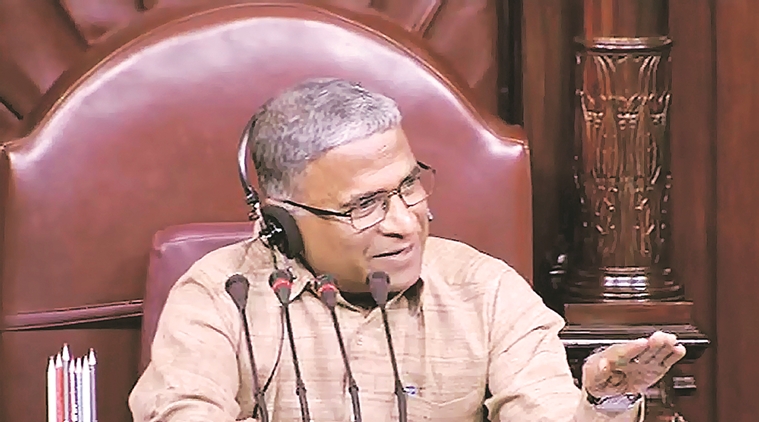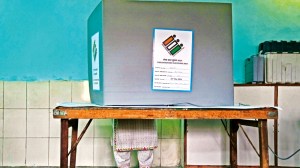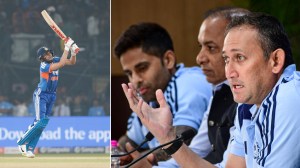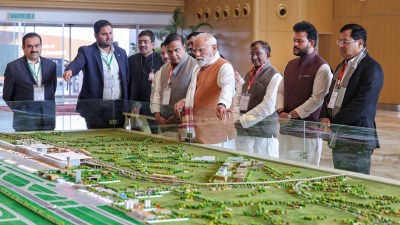Stay updated with the latest - Click here to follow us on Instagram
Rajya Sabha Dy Chairman Harivansh calls for solutions to resolve MPLADS issues
The MPLADS scheme was launched during the Narasimha Rao Government in 1993, ostensibly to provide funds for developmental works recommended by individual MPs.
 Rajya Sabha Deputy Chairman Harivansh
Rajya Sabha Deputy Chairman Harivansh
Rajya Sabha Deputy Chairman Harivansh has written to members, seeking their suggestions on how to address various problems plaguing the MP Local Area Development Scheme (MPLADS), as pointed out by numerous reports both by Parliamentary Committees and the Comptroller and Auditor General of India (CAG).
In his letter dated July 1, 2019, Harivansh, who is the ex-officio Chairman of the Committee on MPLADS, wrote: “When the nation celebrates the 150th birth anniversary of Gandhiji, it would be an appropriate time for leaders of all the political parties to ponder over the issues raised in this letter and take a collective view of such aspects of this scheme as – how best can we utilise the MPLADS funds and check their misuse, and what are the best options available with us? We just ensure that no one can point fingers at the Parliamentarians for which we have to find a way out. The nature of the problems pointed out by me in this letter indicate serious drawbacks in governance structure of the MPLADS scheme.”
The MPLADS scheme was launched during the Narasimha Rao Government in 1993, ostensibly to provide funds for developmental works recommended by individual MPs. The MPs were entitled to recommend works to the tune of Rs 1 crore annually between 1994-95 and 1997-98, after which the annual entitlement was enhanced to Rs 2 crore. The UPA government in 2011-12 raised the annual entitlement to Rs 5 crore per MP.
In his letter, Harivansh wrote that a 1998 CAG report pointed to several instances of mismanagement, misuse of funds and lack of proper accounting of the scheme. In its second report too, the CAG had flagged similar issues.
He pointed to a 2018 Central Information Commission (CIC) order, asking for guidelines of the scheme. “The nodal ministry is reportedly thinking of approaching the Court against the CIC’s order. But the points raised by the CIC, to my mind, should be considered dispassionately more on merit and not purely on technical grounds,” Harivansh wrote.
Along with his letter, the deputy chairman attached all the reports and orders that pointed out the shortcomings in the MPLADS scheme. In January this year, Harivansh had written to In Sadananda Gowda, then Minister for Statistics and Programme Implementation, on these concerns.
Harivansh also quoted a programme evaluation report of the erstwhile Planning Commission, dated November 21, 2001, that identified issues such as improper maintenance of records, inflated reporting of expenditure, percentage utilisation of the fund being lower than officially reported and the poor maintenance of assets created.
The Second Administrative Reforms Commission, in its January 2007 report, said: “Discretionary funds at the disposal of legislators or the power to determine specific projects and schemes or select beneficiaries or authorise expenditure shall constitute discharge of executive functions and may invite disqualification.”
However the Supreme Court held the MPLADS scheme constitutionally valid in its May 6, 2010 judgement.
Parliamentary Committees too have flagged irregularities in the scheme. The Public Accounts Committee (PAC), in its report tabled on March 30, 2012, noted large gaps between the funds available to district authorities and the actual expenditure on the scheme.
Harivansh, in his letter, wrote about how in his very first meeting as chairman, the issues of lack of transparency and accountability was flagged. “…there have been instances of members from both the Houses being expelled on account of misuse of MPLADS funds. This has presented a negative image about us, the MPs. But, as you will agree, only a few of the members fall in this category. In such a situation, it becomes our bounden duty to try to correct this misconception in public by introspecting amongst ourselves,” the letter said.







